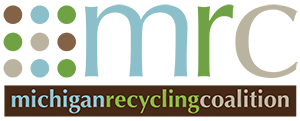PLANNING FOR MATERIALS MANAGEMENT IN MICHIGAN
Remove policy preference for disposal
Assure capacity and siting - zoning and host approval
Preserve local right to limit landfill expansion
Re-engage local governments in planning & programs
Update regulations, tools, and fees
Support diversion programming, infrastructure
At the MRC 2023 Annual Conference, EGLE provided a series of sessions on what the planning process will mean and how you can begin to prepare for your role in the process.
The biggest piece of the puzzle, county planning, is where it all comes together. Learn about the new materials management plan requirements, timelines, and the roles and responsibilities of key stakeholders. Understand what counties and communities can do now to make their process more fruitful. Walk through scenarios and gain a better understand of the why and how to plan.
EGLE has been developing an implementation plan and process, but there are still many unknowns that need to be fleshed out to create their new Materials Management Planning Program.
Check the information on this EGLE webpage for updates.
Currently, each county has a Solid Waste Management Plan, soon to be a Materials Management Plan, that ensures adequate disposal capacity and assures that all non-hazardous solid waste generated in the county is collected, recovered, processed, or disposed of at facilities that comply with state laws and rules. Counties will be transitioning to plans with a materials management focus. THE CURRENT SOLID WASTE MANAGEMENT PLANS REMAIN IN EFFECT UNTIL A NEW MATERIALS MANAGEMENT PLAN IS APPROVED.
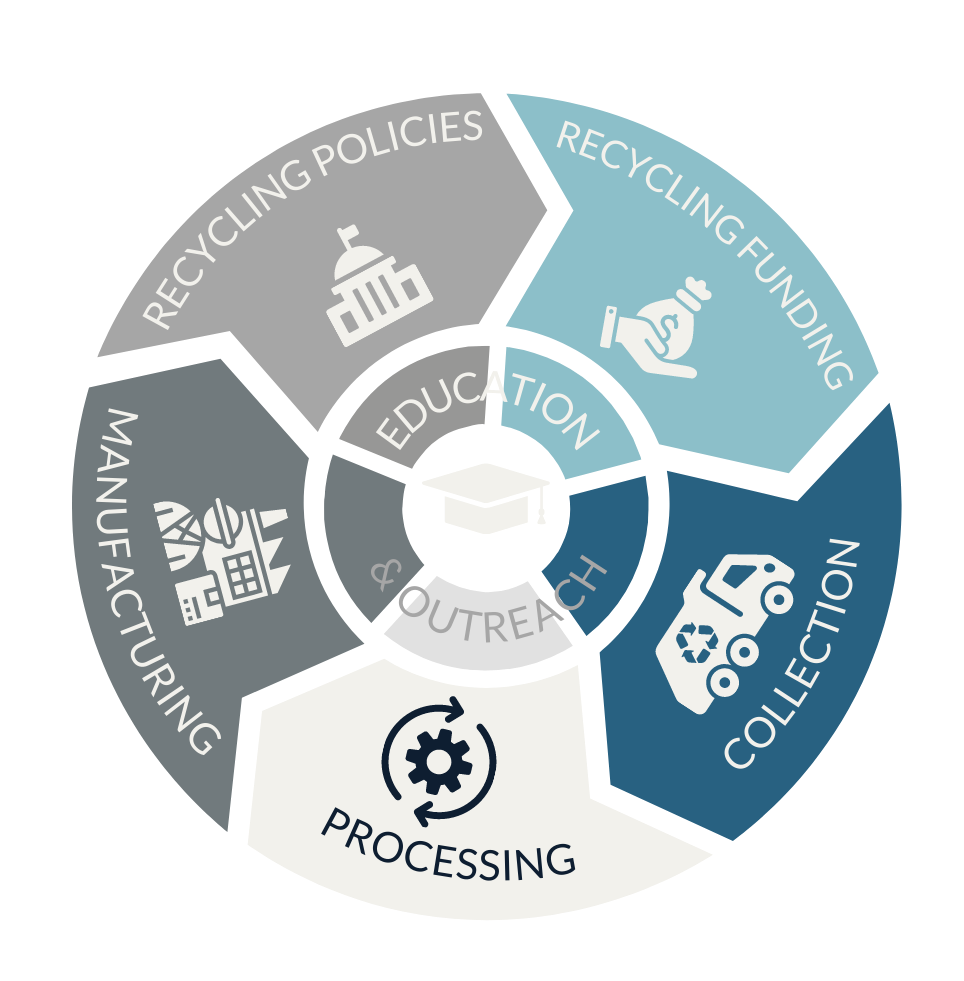
As the policy framework on which all materials management programming will be developed, it will be important to understand how all the pieces of Part 115 fit together. Get some context behind the changes to Michigan solid waste law and how it's intended to move Michigan closer to a circular economy. Explore all the moving parts and how they are intended to work together to create a materials management system that protects our environment and contributes to our economy.
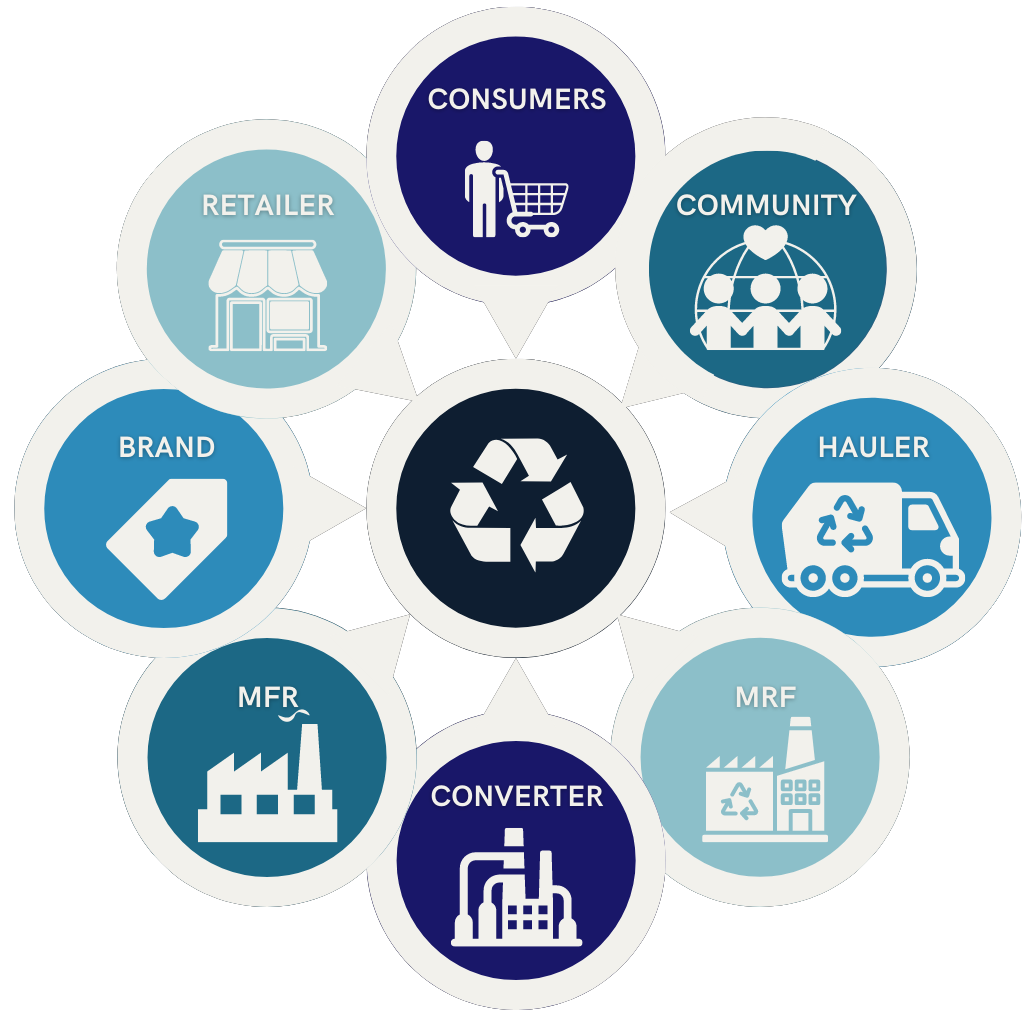
The amendments to Part 115 shift the focus of planning to more productive ways of managing discarded materials in Michigan. The goals of future Materials Management Plans (MMP) are, in addition to protecting the environment and public health, to ensure that managed materials (recyclables, organic materials, and solid waste) are sustainably managed to achieve benefits to the economy, communities, and the environment.
The amendments to Part 115 shift the focus of planning to more productive ways of managing discarded materials in Michigan. The goals of future Materials Management Plans (MMP) are, in addition to protecting the environment and public health, to ensure that managed materials (recyclables, organic materials, and solid waste) are sustainably managed to achieve benefits to the economy, communities, and the environment.
Part 115 is the policy framework on which counties and communities will create their plans and the programs and services that will help them meet their materials management goals. Learn more about the support, tools, and resources, including grants and technical assistance, EGLE is developing to help you make progress toward meeting collective and community goals. Learn how new benchmark recycling standards will set the stage for communities to identify needs, develop a funding mechanism, provide services, and serve their community.
Materials Management Plans must include measurable, objective, and specific goals for the planning area for solid waste diversion from disposal areas, including, but not limited to, the municipal solid waste recycling rate goal, the benchmark recycling standards, and the material utilization and reduction activities identified by the MMP.
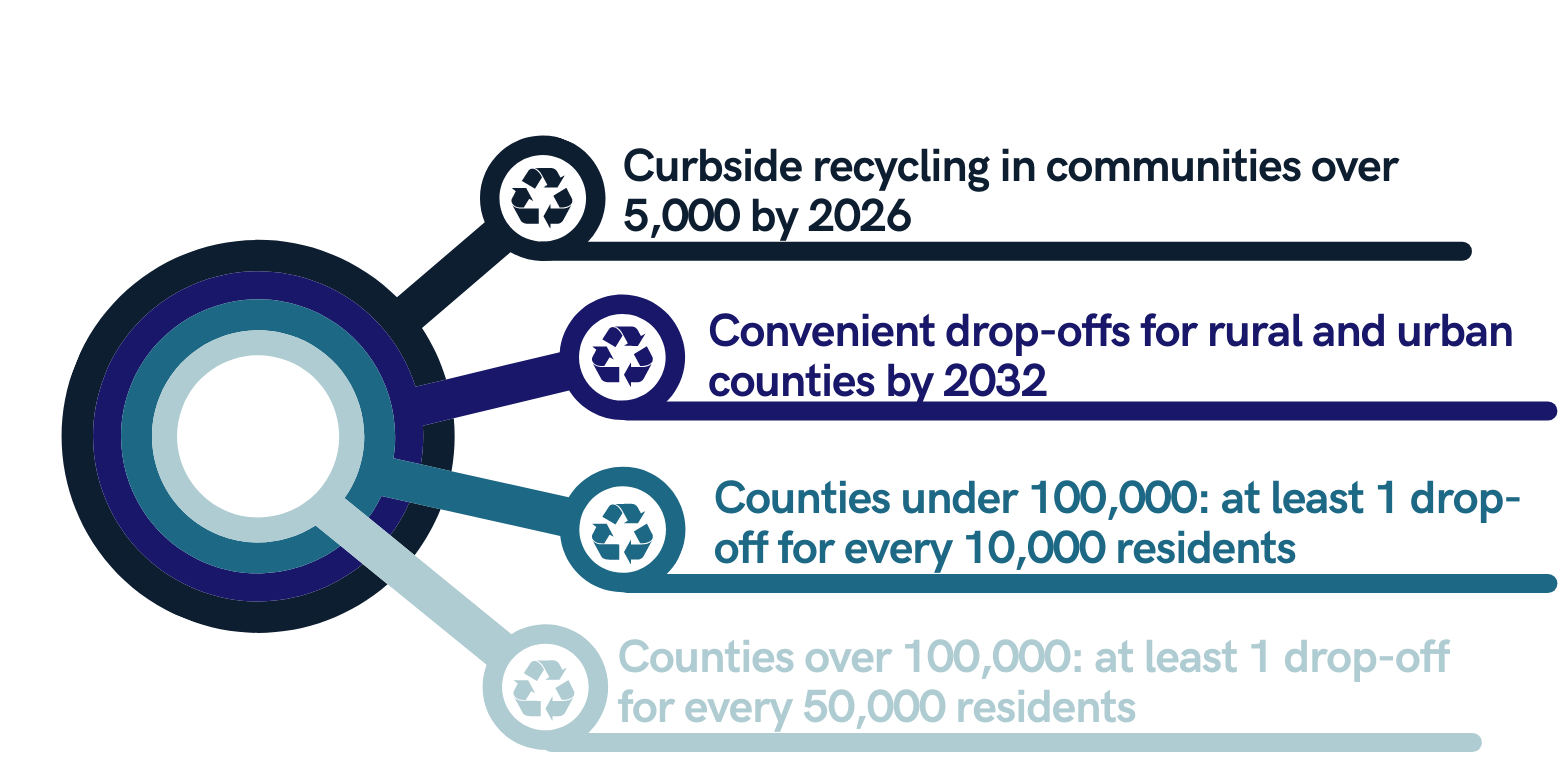
In an effort to put productive materials management methodologies on par with waste, all facilities managing material will now be required to either notify, register, or apply for a general permit with the Department. Learn more about these and other reporting requirements. Understand at what level a general permit will be required and what that means for your materials recovery facility, waste diversion centers, anaerobic digesters, innovative technology facility, or other source separated facility.
County Materials Management Plans will...
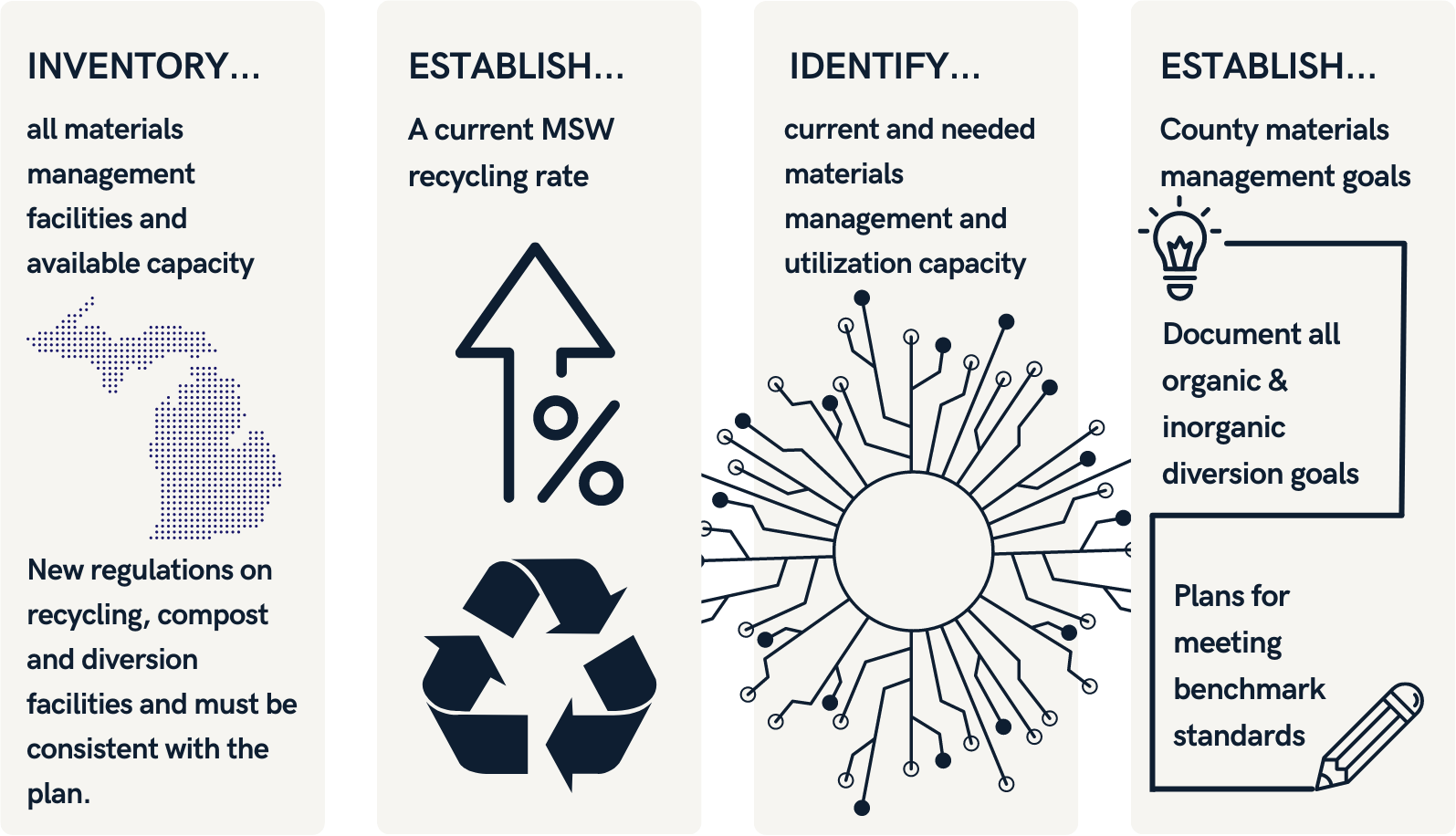
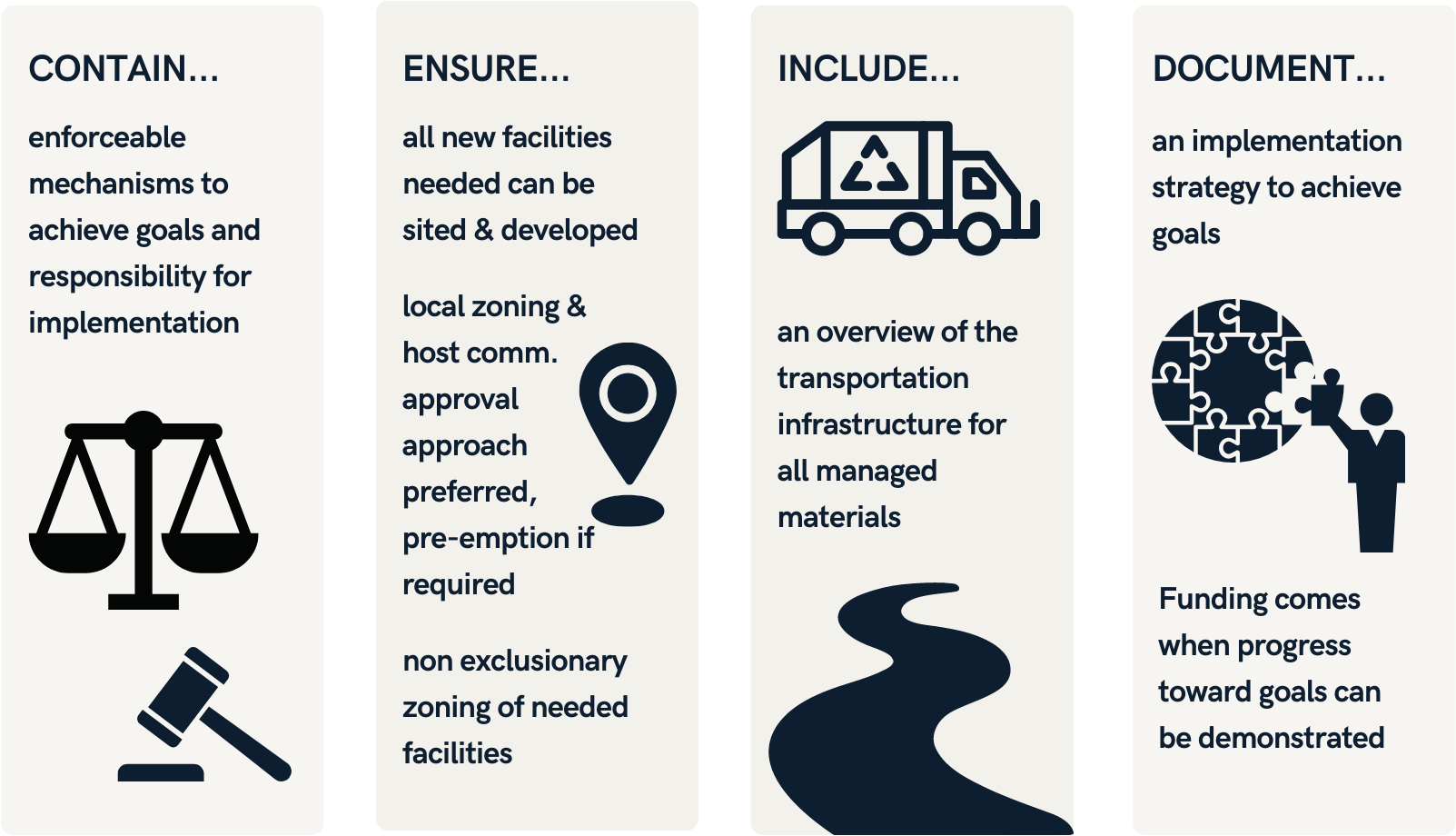
Composting facility regulations will no longer be "one size fits all," and will benefit Michigan by assuring facilities are an asset to their community. Oversight and regulations on composting operations expand significantly under newly adopted changes to Part 115. Learn about new definitions, testing, and requirements for managing compostable materials, compost additives, and compost facilities. Understand what these regulations mean for your facility and what compliance and permitting will look like under the new framework. See how these changes will build confidence in composting and create new opportunities for Michigan composters.
MAKE THE CASE FOR RECYCLING: A Toolkit for Local Governments
This "Making the Case for Recycling" workshop and tools are intended to empower local government officials who are interested in building or improving a recycling or organics program in their community.
This slide deck is a customizable tool to share findings and a vision for community integrated service development.
This worksheet asks key questions about the community and offers wayfinding information for integrating recycilng and organics management services, offering suggestions for program development and sharing capital and operational expenses for services.
This handbook explores the integrated nature of solid waste, recycling, and organics management service provision and economics.
